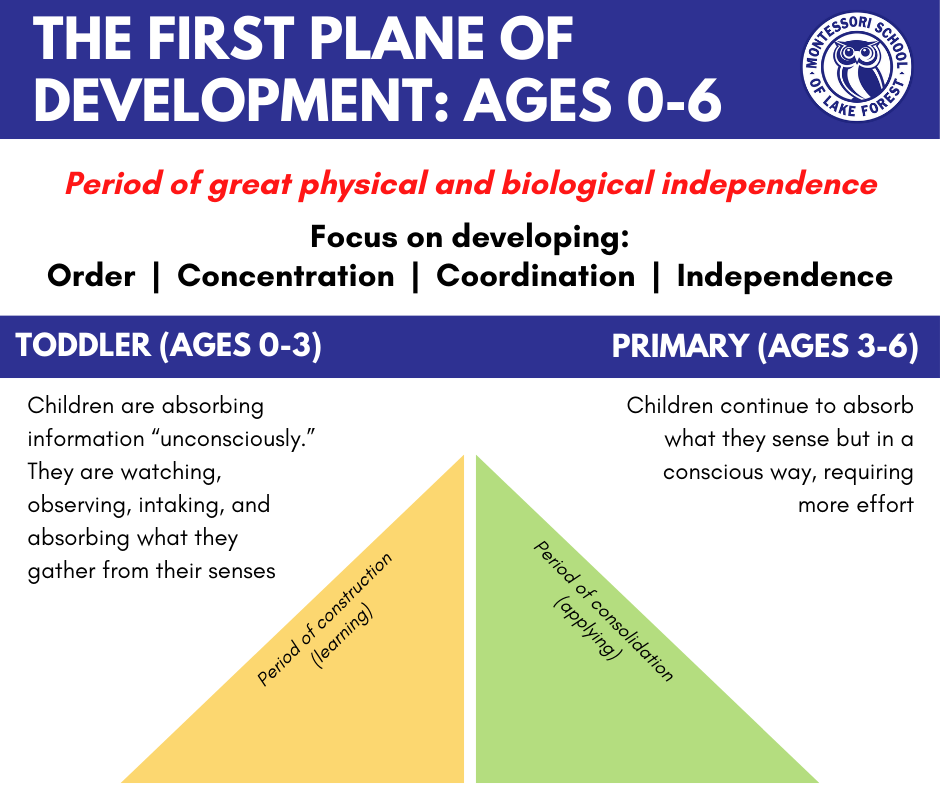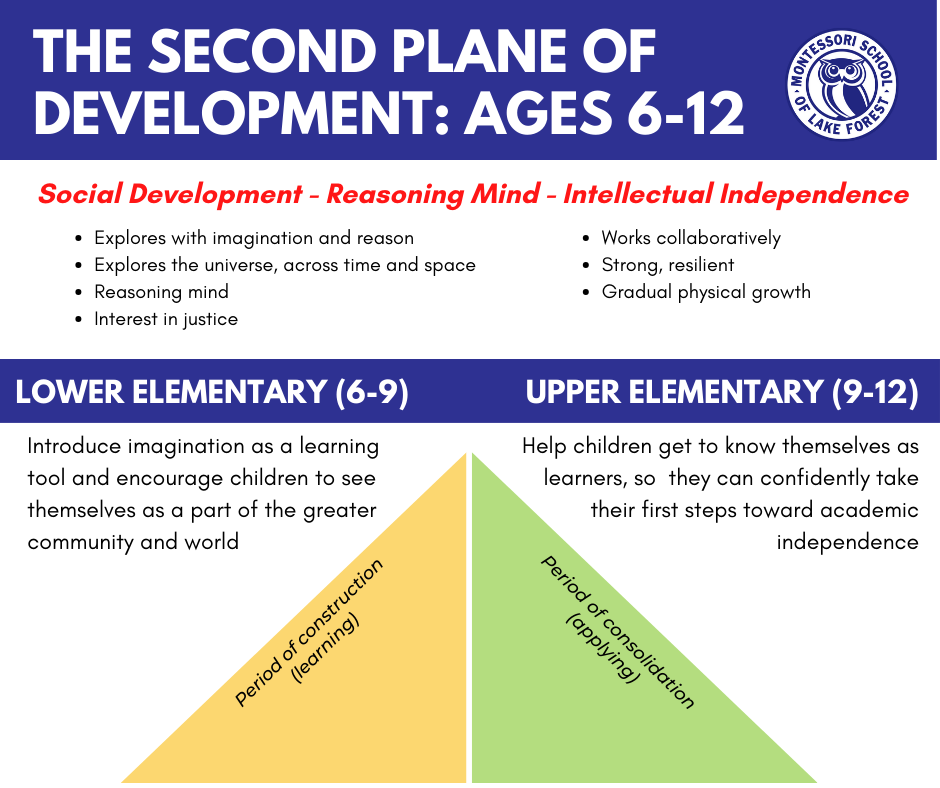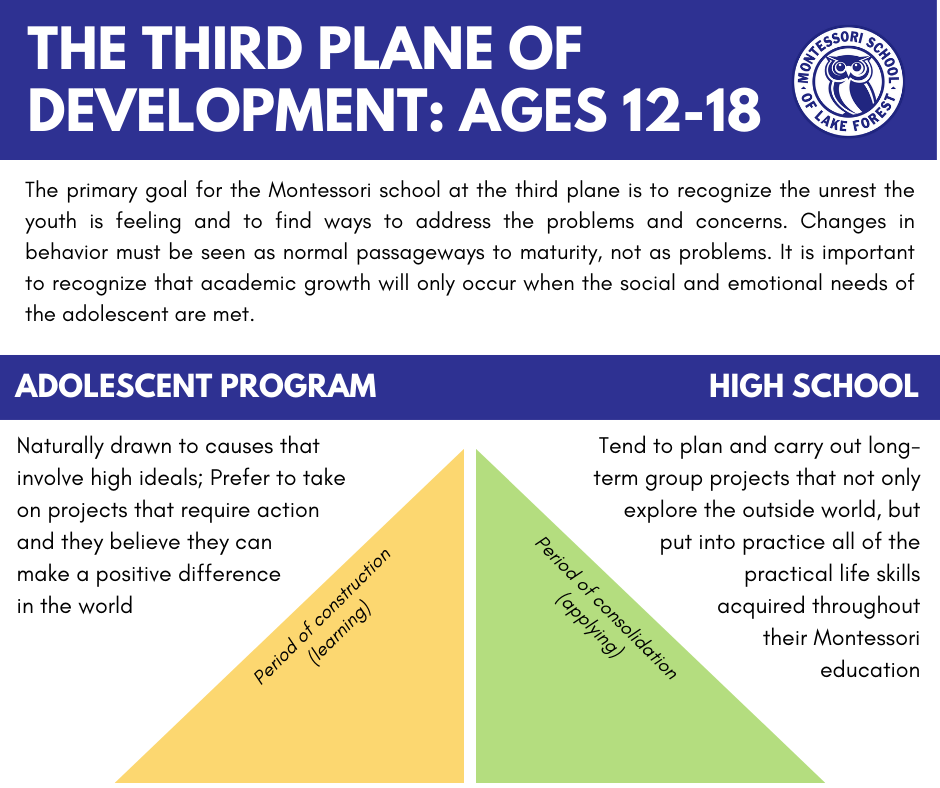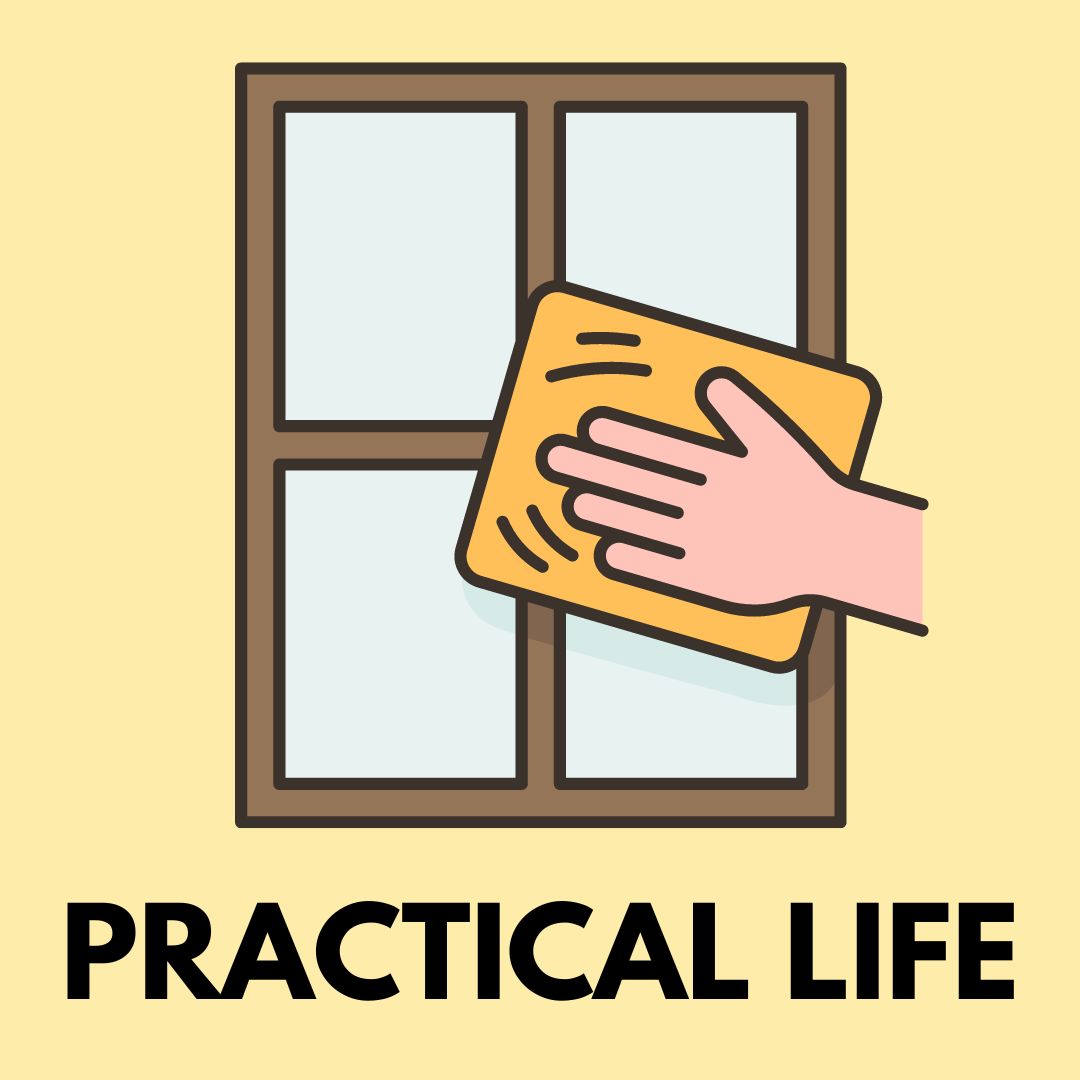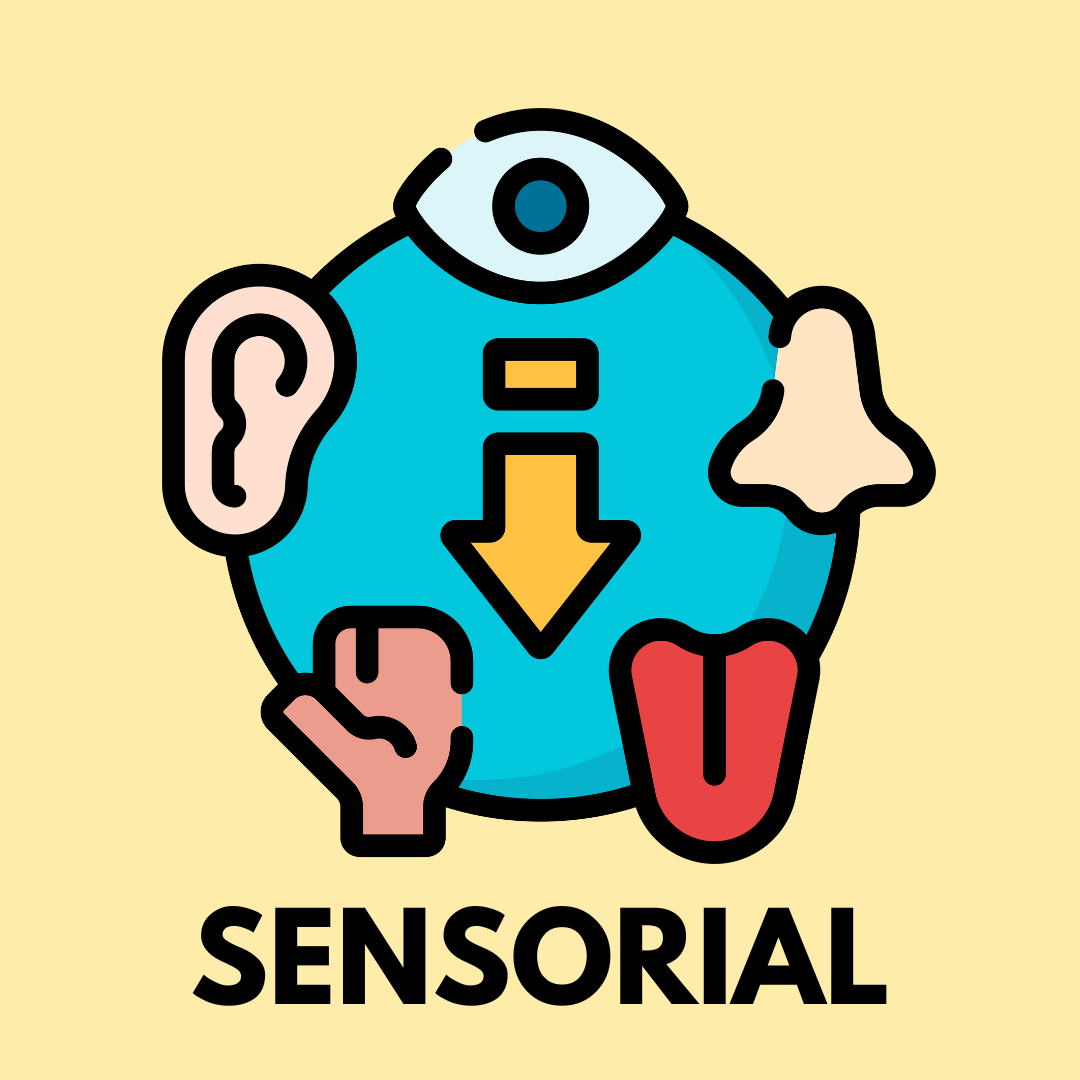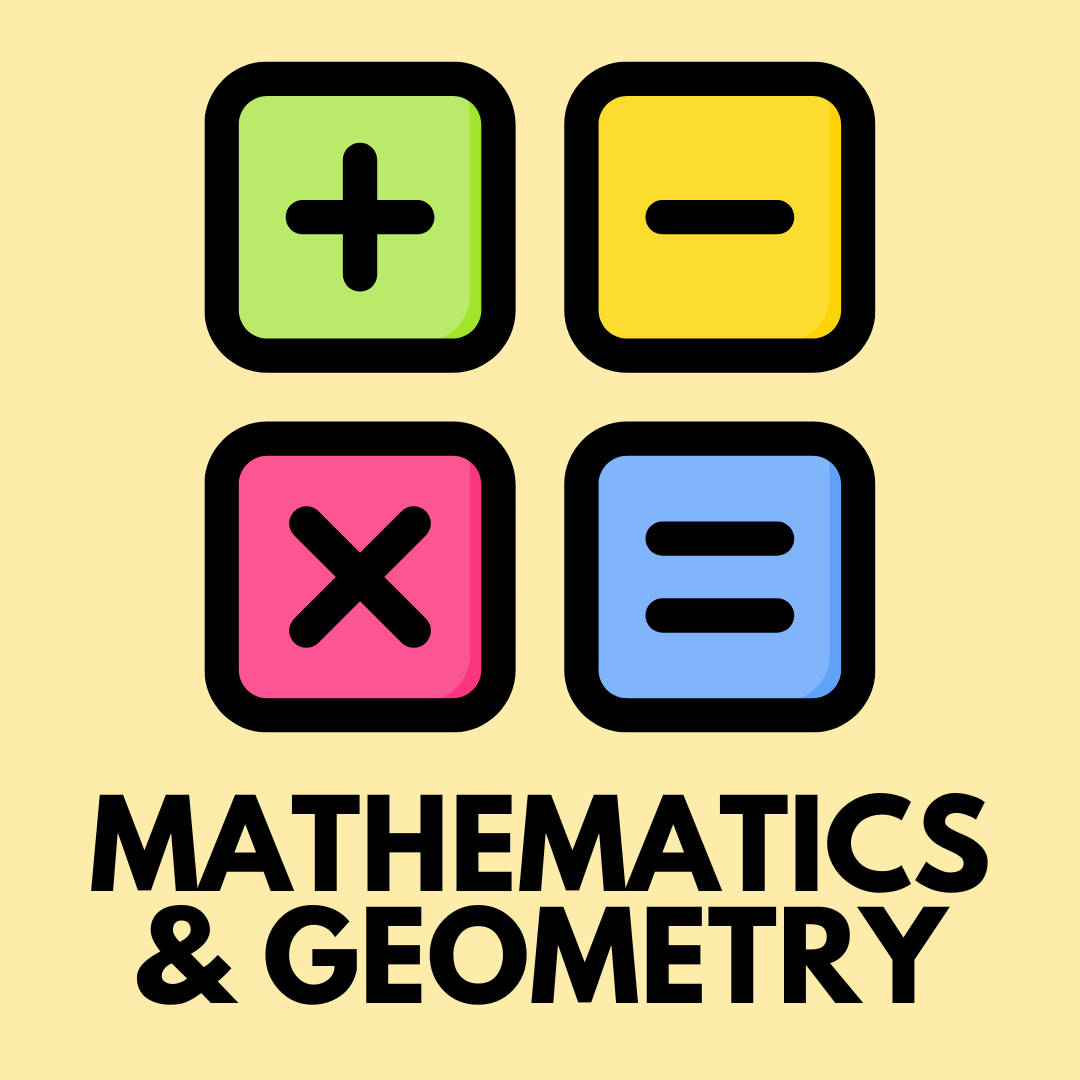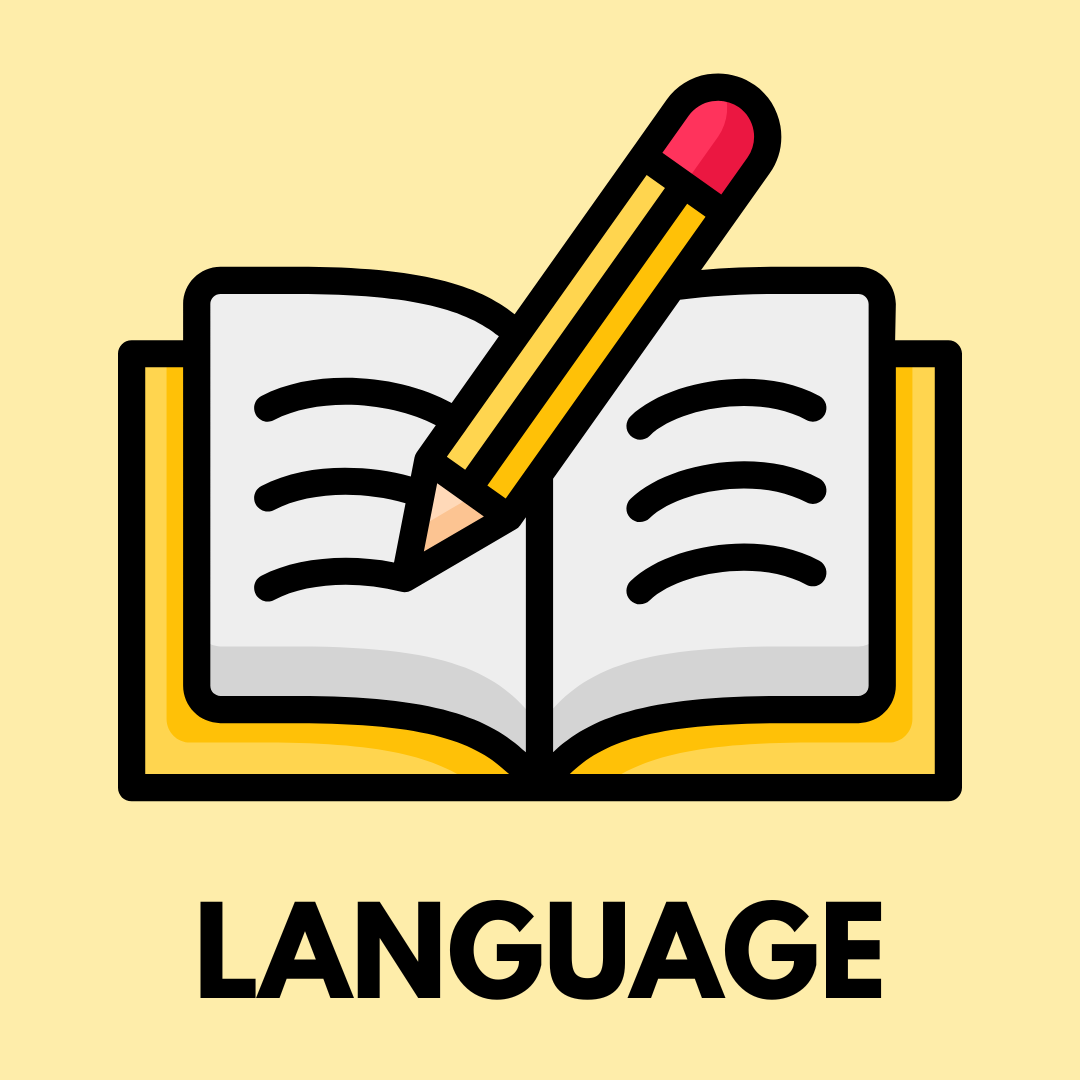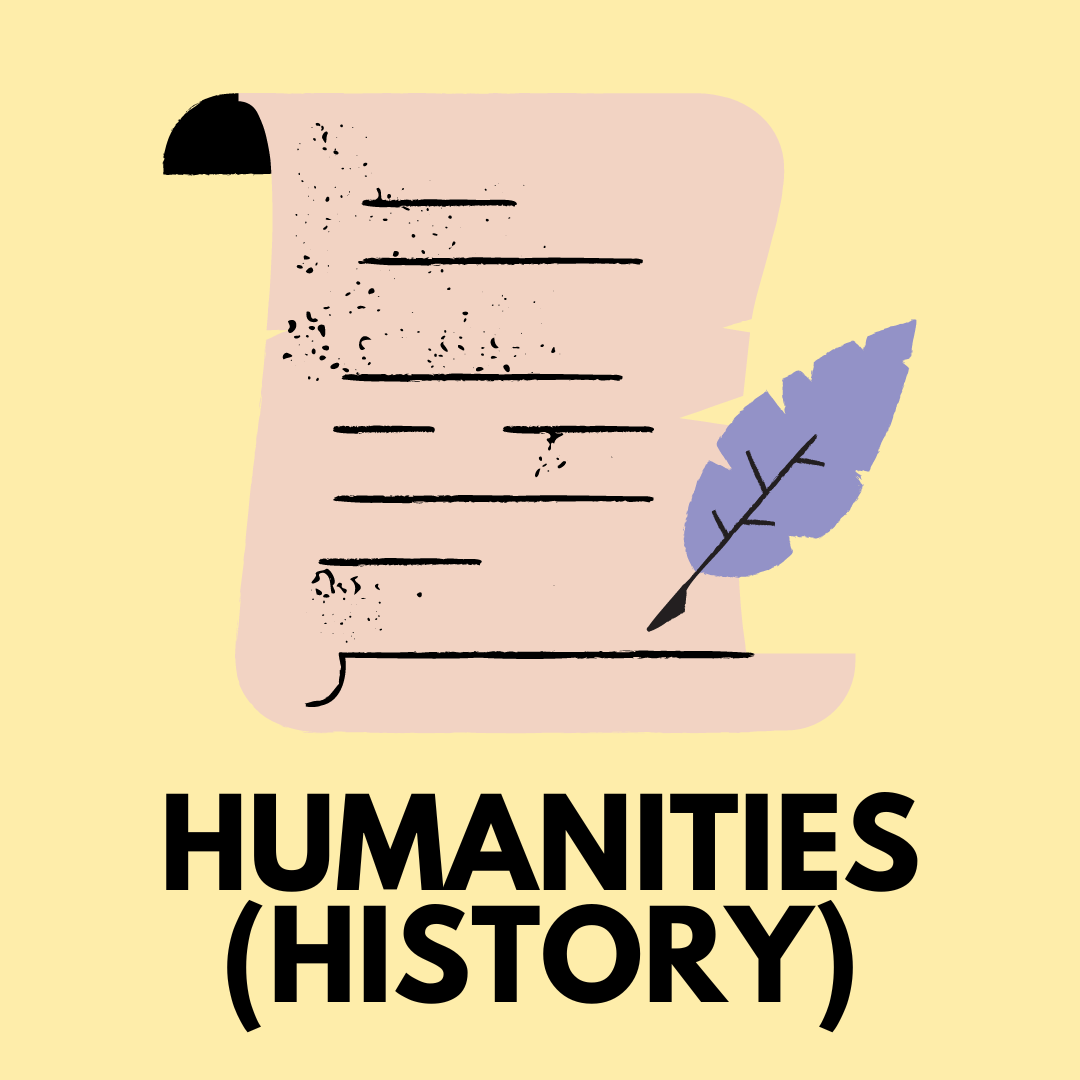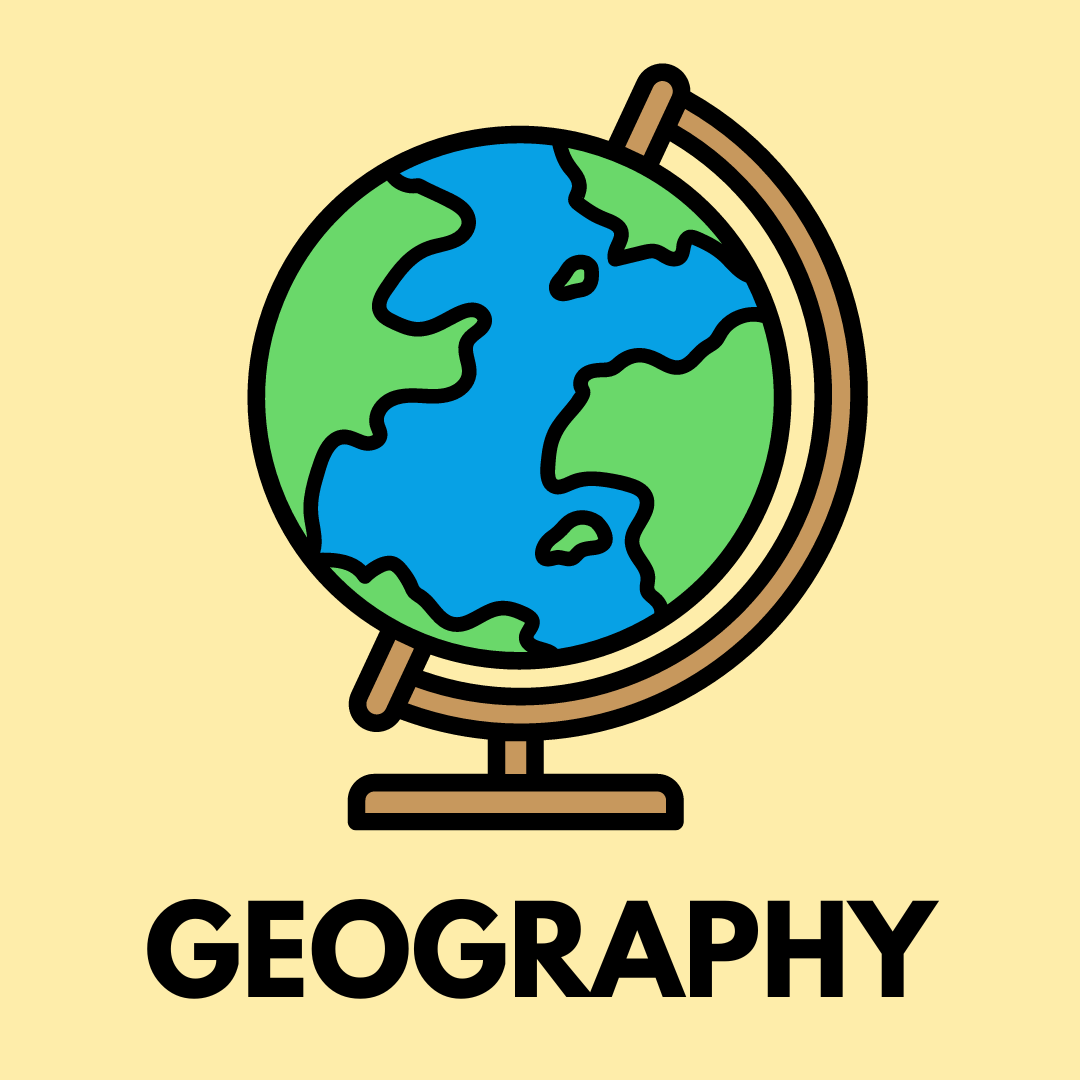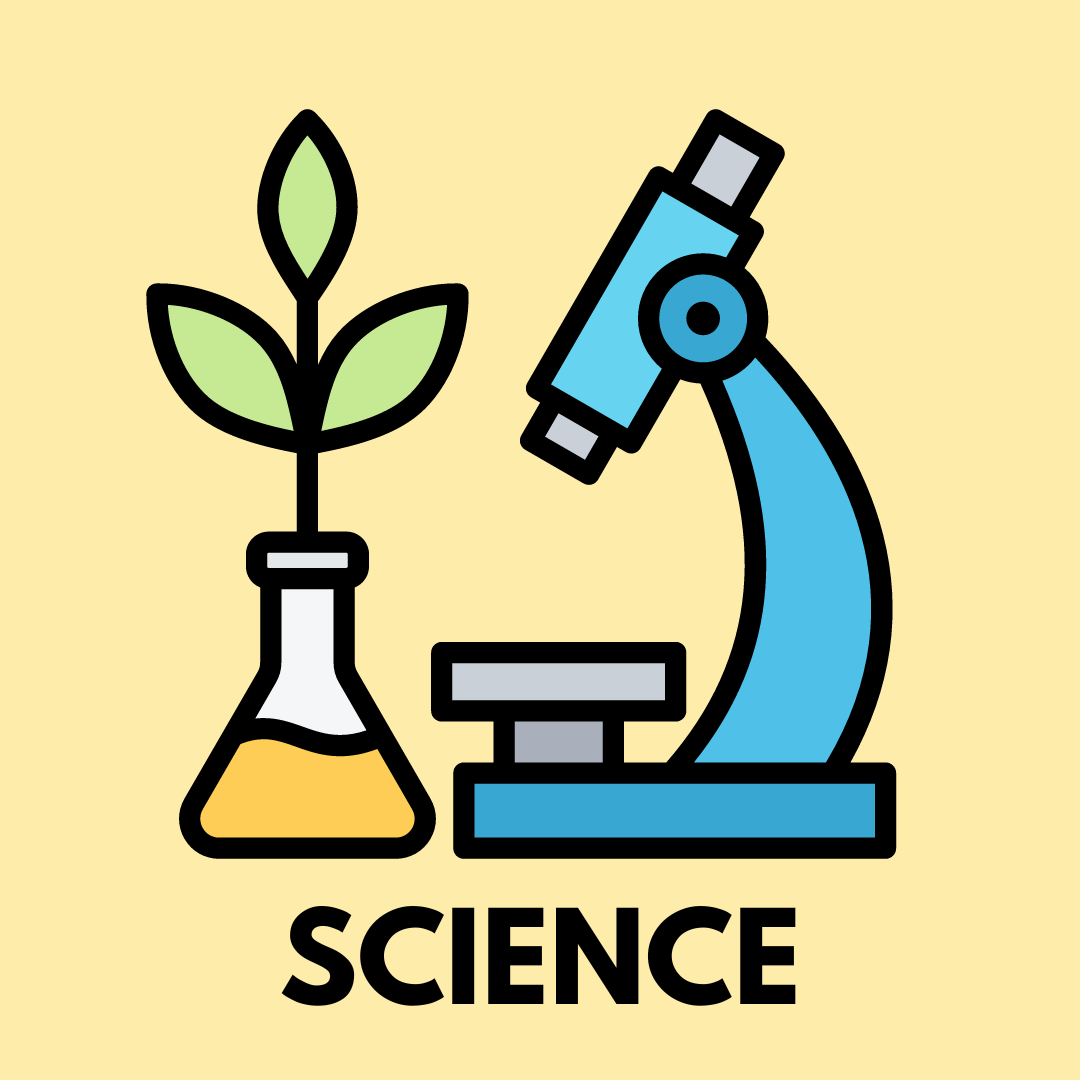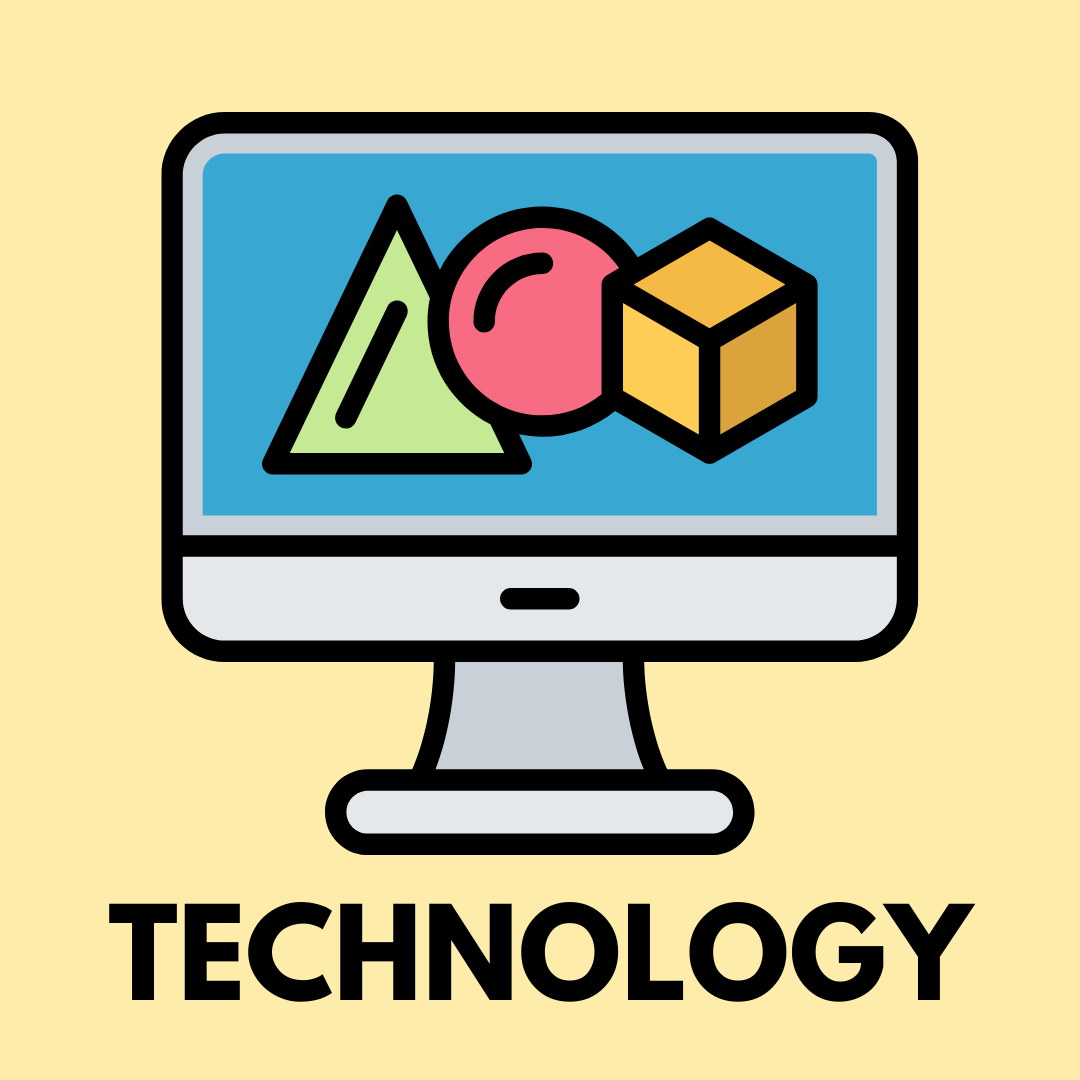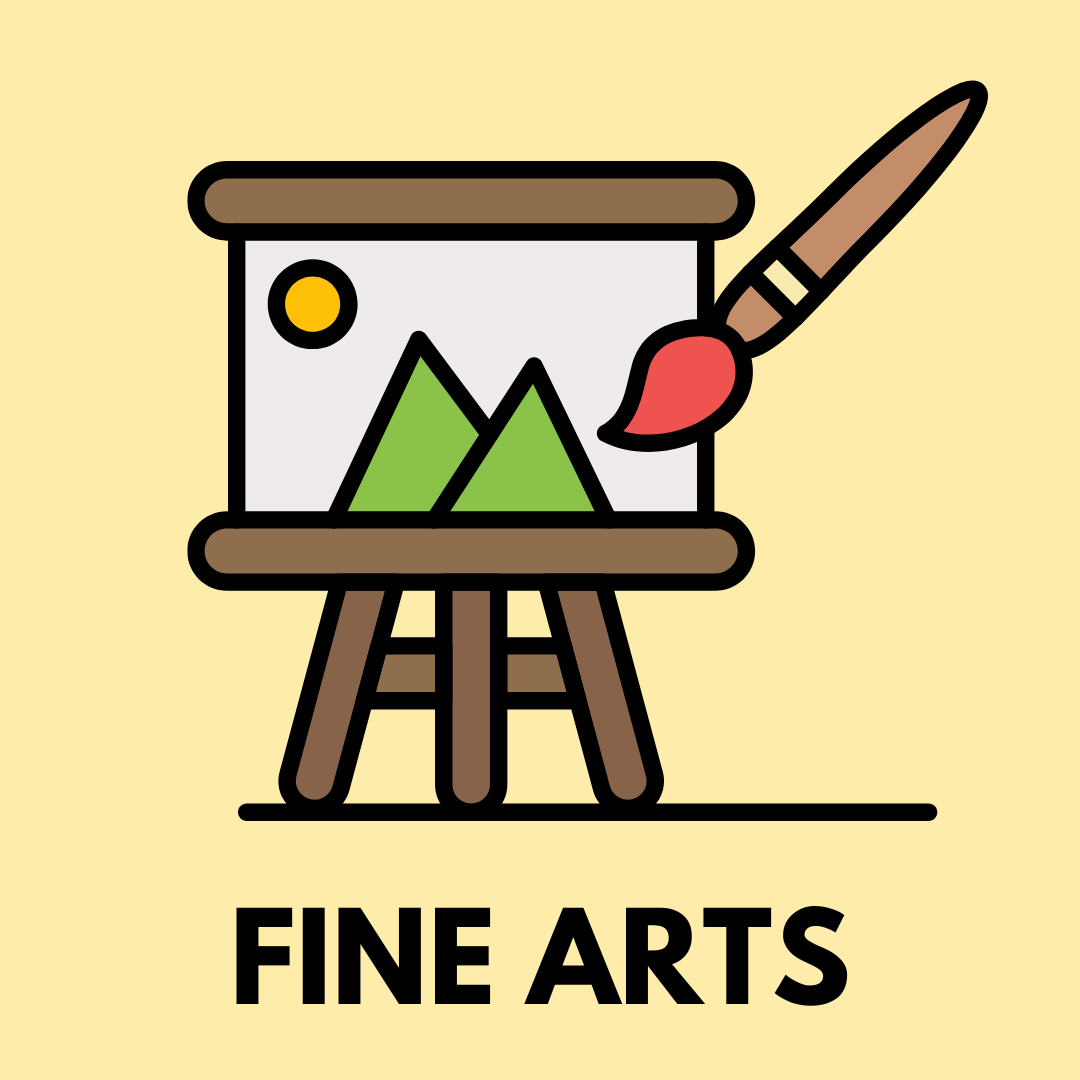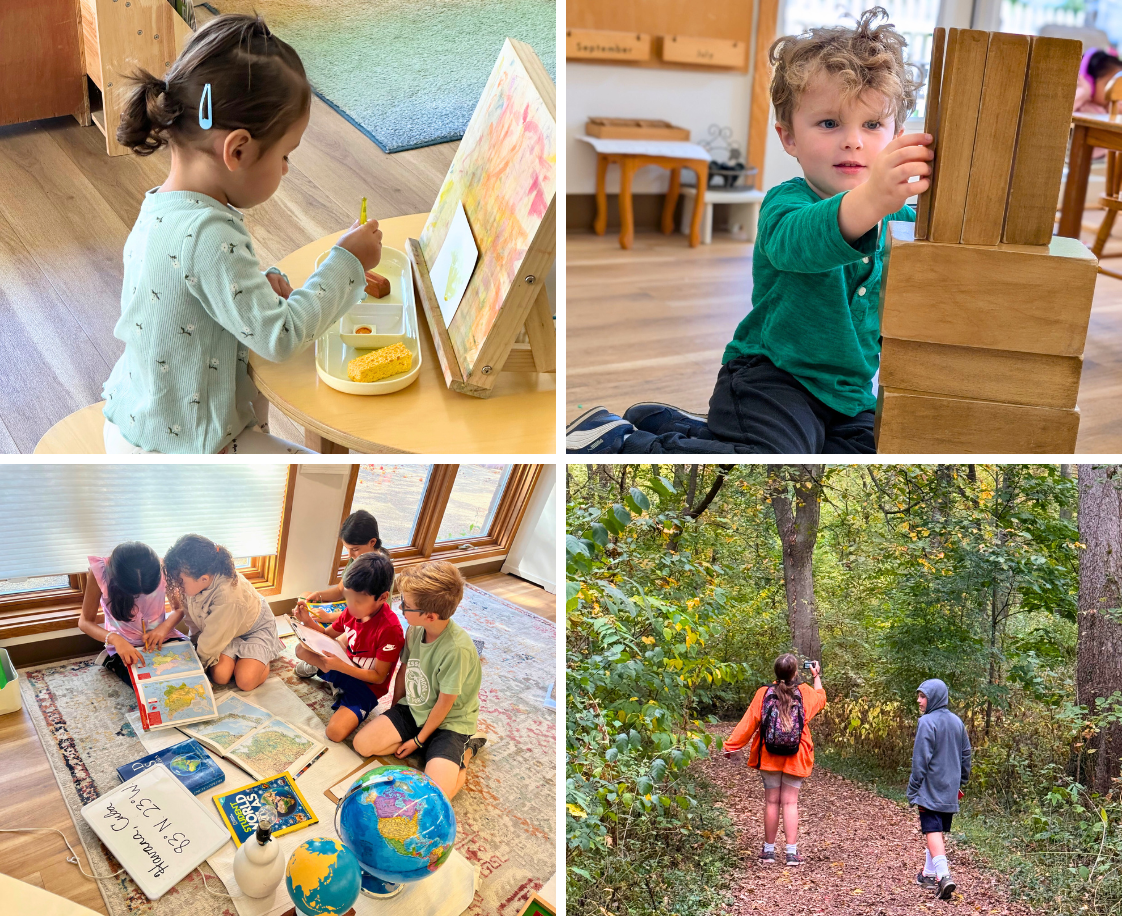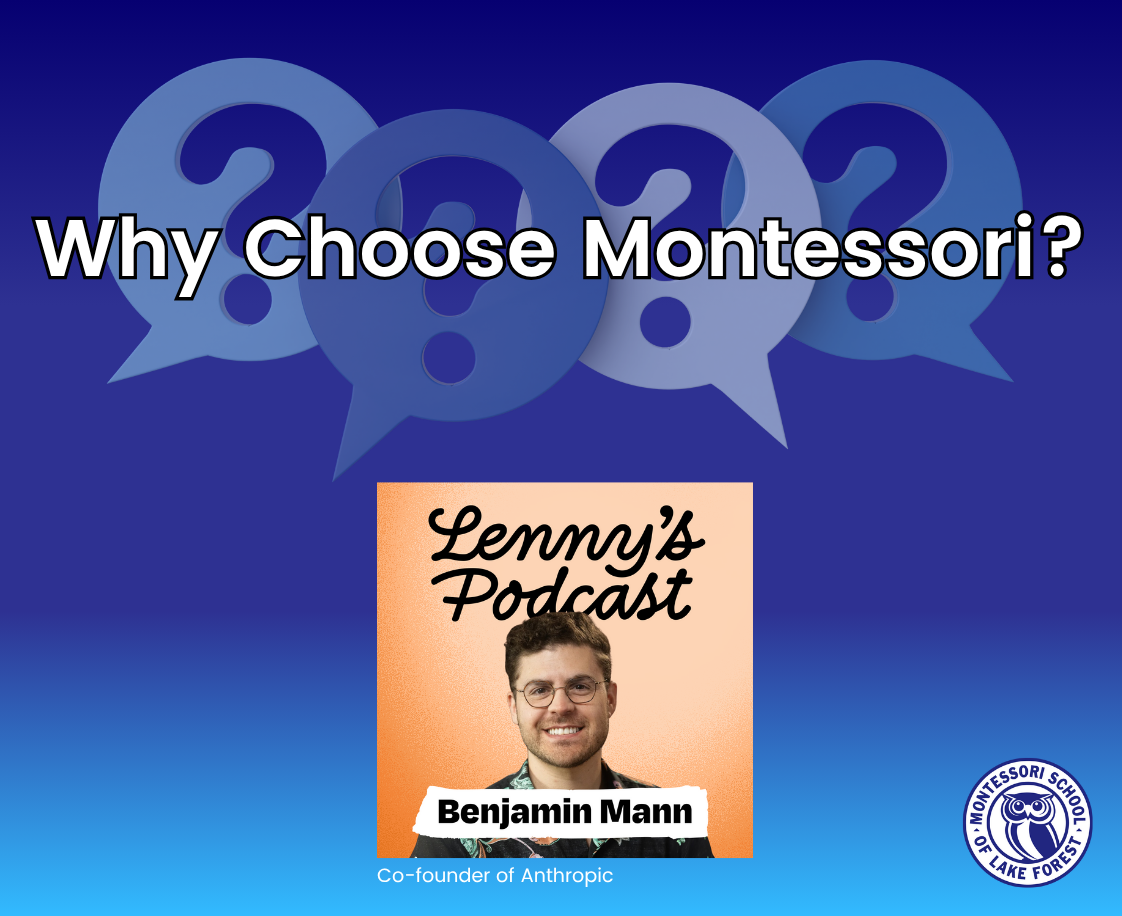An in-depth look at the Montessori curriculum at MSLF

At MSLF, we are constantly striving to ensure our families have a clear view of how our Montessori curriculum can and will best support their child’s developmental needs. If we didn’t believe so wholeheartedly in the strength of the Montessori curriculum, we wouldn’t be here! We truly believe that children are best served by curriculum which meets them at their developmental level, while at the same time fostering their interests and drive to learn.
Montessori education was developed over 100 years ago by Dr. Maria Montessori. As a physician and a trained researcher, and through the utilization of scientific observation methods, Maria designed learning materials and a classroom environment that fostered the children’s natural desire to learn. Montessori dedicated herself to advancing her unique approach to education, opening her first classroom in Rome in 1907. By 1910, Montessori schools were acclaimed worldwide. Few educators have had as lasting of an impact as Maria Montessori. Her unique teaching philosophy was based on her scientific observations of children's natural learning processes, which eventually led to the development of the Montessori method of learning.
Even today, Montessori education is the most widespread and common alternative education system in the world. It has become well known for producing some of the world’s most successful entrepreneurs (Google founders Sergey Brin and Larry Page), innovators (Jeff Bezos and Bill Gates), sports legends (basketball star Steph Curry), and creative icons (Beyoncé and Taylor Swift). In just the past year, two meta-analyses of research (here and here) have found that Montessori education had a significant positive impact on both academic and non-academic outcomes, highlighting the benefits of a Montessori program on social development, emotional development, and cognitive development. Researcher Angeline Lillard, co-author of one meta-analysis, states "This helps children develop into independent but collaborative, socially aware, competent adults who know themselves and are equipped to lead meaningful, useful lives."
Today, we are providing you with the comprehensive view of curriculum used at MSLF – the MSLF Curriculum Scope and Sequence. This practical guide is designed to help manage curriculum planning, implementation, and recording in the Montessori classroom. Schools in the Montessori community have developed these guides as invaluable tools to evaluate the age ranges at which we believe Montessori children should commonly reach major milestones and develop a language that is performance oriented and understood by parents and described in conventional educational terms. It is important to note that the Scope and Sequence, along with the lesson plans, observation, lesson tracking, assessments, and reporting methods that support it, are all components of a complete educational curriculum at MSLF.
We hope this information helps to guide your understanding of the breadth and depth of the Montessori curriculum and how this investment in your child’s education will truly serve them well into the future.

Dr. Maria Montessori designed her programs (lessons, materials, and classroom activities) to work in harmony with the way children learn. Through the utilization of scientific observation methods, Dr. Montessori designed learning materials and a classroom environment that fostered the children’s natural desire to learn. Her programs were then designed to support the specific, innate needs children have at various stages of development. Dr. Montessori identified these as Planes of Development.


